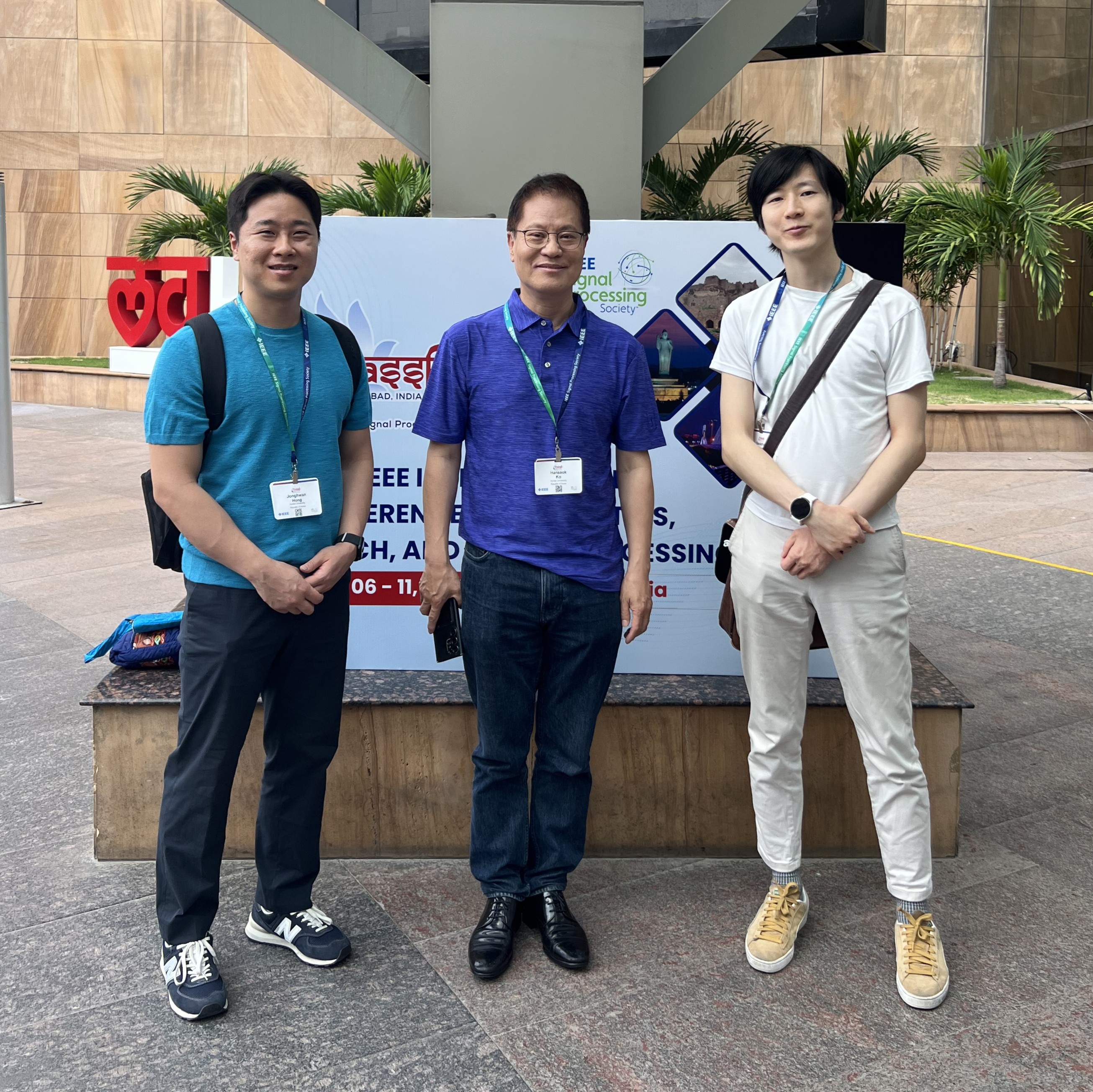 Hanseok Ko, Newton-Bennett Endowed Chair of Engineering and Professor in the Department of Electrical Engineering and Computer Science, recently presented pioneering research at the Institute of Electrical and Electronics Engineers (IEEE) International Conference on Acoustics, Speech, and Signal Processing (ICASSP). As one of the world’s top conferences in signal processing and artificial intelligence, ICASSP attracts global leaders in technology and research. Ko presented two papers at the conference, both closely aligned with Catholic University’s strategic emphasis on artificial intelligence as a pillar of its research mission. Featured in the image: Hanseok Ko (middle), Jonghwan Hong (left), David Lee (right).
Hanseok Ko, Newton-Bennett Endowed Chair of Engineering and Professor in the Department of Electrical Engineering and Computer Science, recently presented pioneering research at the Institute of Electrical and Electronics Engineers (IEEE) International Conference on Acoustics, Speech, and Signal Processing (ICASSP). As one of the world’s top conferences in signal processing and artificial intelligence, ICASSP attracts global leaders in technology and research. Ko presented two papers at the conference, both closely aligned with Catholic University’s strategic emphasis on artificial intelligence as a pillar of its research mission. Featured in the image: Hanseok Ko (middle), Jonghwan Hong (left), David Lee (right).
The first paper, “Diversity Seeking Techniques for Red-Teaming Large Language Models,” explores how to make AI systems more secure by diversifying the prompts used to test large language models. The proposed methods—Defender and Teamplay—drive automated systems to discover a wider range of potential weaknesses in AI, making these models safer and more robust. This work contributes to a growing field focused on responsible and resilient AI development.
The second paper, “Less is More: Efficient Scene Graph Generation with Parameterization,” addresses the challenge of enabling machines to understand visual scenes in a computationally efficient way. The research introduces Reparams-SGG, a streamlined architecture that performs on par with state-of-the-art systems but with far fewer parameters. Its ability to recognize both common and rare relationships between objects makes it suitable for real-time, AI-driven applications—from robotics to smart surveillance.
In addition to delivering these presentations, Ko played an active role in shaping the future of the field as a member of the IEEE SPS Conference Board, where he helped select the venue for the 2029 ICASSP. Professor Ko was also the general chair of the IEEE ICASSP conference in 2024.
These contributions highlight Catholic University’s growing leadership in AI research and its commitment to advancing technologies that are not only powerful, but principled. As the University continues to expand its focus on artificial intelligence, Ko’s work exemplifies the type of innovation that aligns with Catholic University’s vision for AI research that serves both science and society.
For additional information on the IEEE conference, click here: https://2025.ieeeicassp.org/
